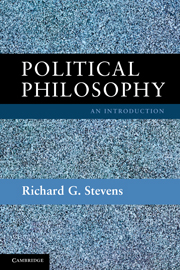Introduction to Part II
Published online by Cambridge University Press: 05 June 2012
Summary
In Plato's Laws, in the course of developing an imaginary city, a detailed description is given of the various officials to be established, and laws are proposed covering every aspect of human concern: marriage, procreation, the nurturing and education of children, and so on. At one point the Athenian Stranger explains to Clinias of Crete and Megillus of Sparta that babies, while awake or sleeping, should be kept constantly in motion and their ears constantly filled with soothing sounds. These things are necessary to counteract the internal motions of fear and frenzy (790c–791b). What, then, may be the underlying causes of that fear and frenzy that the argument of the dialogue presupposes are, by nature, found in all babies? Why, throughout all of history, have there been lullabies? Why do young children race about such as to exhaust a watching adult? Why do they chatter, and why do they endlessly recite sing-song ditties? Are these things a shield? To the extent that they are beset by fears, and particularly the fear of death, human societies (whether political or merely tribal) have fashioned a thousand remedies from incantations to stave off the inevitable to poetic traditions that promise rewards in the hereafter for good conduct here
In Book Ten of the Republic, Plato makes Socrates persuade Glaucon and Adeimantus that there is life after death. He then relates a story of someone who, it was said, died and was then allowed to return to life to report to the living that those who had comported themselves well in life travel hereafter to an upper realm in the House of Hades that is blissful and that those who had comported themselves ill here travel downward there to a realm that is most unhappy. After a thousand years, most from both realms in the House of Hades return to life by way of metempsychosis. That is, they are embodied again, some in human form, some in another animal form. What is especially interesting in the story is that even those who had been for a thousand years in the bliss of the upper realm approach their return to life with eager anticipation. Why? Perhaps life itself, even a rather unhappy life, is sweet. Perhaps the pleasures of the flesh, even such gentle pleasures as the inner sense of well-being while walking in a beautiful garden on a warm spring day, are more to be desired than the millennium-long unrelieved bliss of the upper realm of the House of Hades. Perhaps what is missing there is striving, pursuit – in a word, eros.
- Type
- Chapter
- Information
- Political PhilosophyAn Introduction, pp. 100 - 104Publisher: Cambridge University PressPrint publication year: 2010



